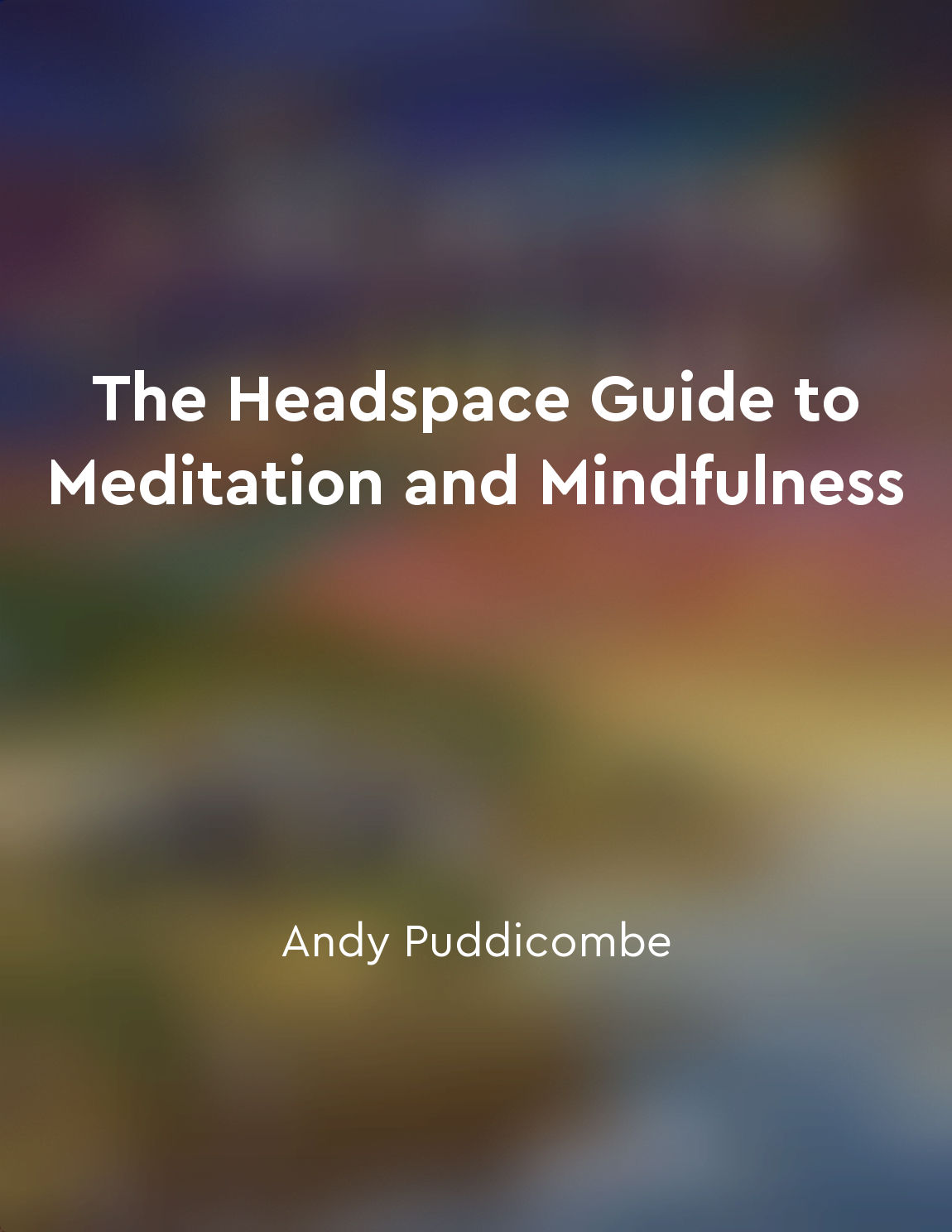The concept of self is fluid and everchanging from "summary" of Why Buddhism is True by Robert Wright
The idea that there is no fixed, unchanging self at the core of our being is a central tenet of Buddhism. This concept challenges our deeply ingrained belief in a permanent and unchanging self, a belief that is so deeply rooted in our minds that we rarely question it. But if we take a closer look at our own experiences, we can see that the self is actually a fluid and ever-changing entity. Our thoughts, emotions, and perceptions are constantly shifting and evolving, giving rise to a sense of self that is always in flux. We may think of ourselves as a consistent and unchanging entity, but in reality, we are a collection of ever-changing mental states and processes. This insight can be both liberating...Similar Posts
Practice mindfulness to live fully in the present moment
Mindfulness is not a belief system. It is not a dogma or a doctrine. It is not something you have to follow. It is a practical ...
Mindfulness practice can enhance overall wellbeing
Mindfulness practice can enhance overall wellbeing by helping individuals cultivate a state of mental clarity and emotional sta...
Trust in the power of faith
In the depth of my soul, I have felt a profound connection to something greater than myself. It is a force that guides me throu...
Sankhya and Karma yoga are paths to selfrealization
Sankhya and Karma yoga are both paths that lead to self-realization. Sankhya yoga is the path of knowledge, where one gains und...

Mindfulness is about being present in every moment
Mindfulness is not about trying to achieve anything, nor is it about attaining a state of mind that is serene or peaceful. It's...

Use guided meditations to enhance your practice
Guided meditations are like having a personal trainer for the mind. They provide structure and support, helping you to stay foc...
The importance of yoga in spiritual growth
Throughout the text, the significance of yoga in nurturing spiritual growth is emphasized as a fundamental aspect of one's jour...
Four types of devotees explained
In the Bhagwat Gita, Lord Krishna explains the four types of devotees. These devotees are classified based on their level of fa...

Practice mindfulness
Mindfulness is the act of being fully present in the moment, without judgment. It's about paying attention to what is happening...
Through disciplined practice, one can attain a deep sense of awakening
In the practice of Zen meditation, one embarks on a journey of disciplined training aimed at cultivating a deep sense of awaken...
